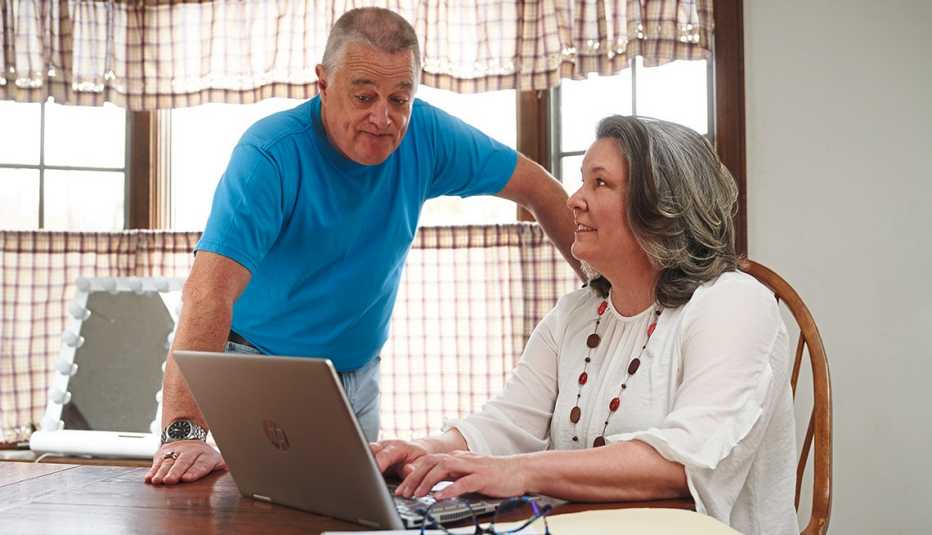AARP Hearing Center


The problem
How do you break a lingering bad money habit? New Jersey couple Gail O’Donnell, 54, an insurance agency account rep, and her husband, Danny, 60, a training supervisor, have carried credit card debt for more than half of their 27-year marriage. Twice, they refinanced their mortgage, pulling out cash to pay off their cards. Twice, they charged those cards back up again. Compounding the problem: Gail often felt she didn’t have Danny’s help. “He’s the spendthrift, and I’m the penny-pincher,” she wrote me. Now, though, he was willing to work on it with her, so she was eager to dive in.
The advice
In 2022, credit card balances climbed to $986 billion, a record high. About $70,000 of that debt was the O’Donnells’. Gail and Danny needed a nuts-and-bolts strategy to free up cash and pay down debt. But their challenge was emotional too. To escape their cycle of debt, the O’Donnells had to understand why they behaved as they did with money. My plan for them:
Step 1: Brass Tacks
One thing in the O’Donnells’ favor was that they were earning a good living. But their money wasn’t showing up in any savings — no emergency fund, no contributions to retirement accounts. They weren’t sure where their money was going. When I had them start tracking their spending, food emerged as a primary culprit. They’d spent $1,600 on food in the prior month alone — more than $50 a day. “We talk about dinner at 5 p.m. when we’re both starving, then we go to the [grocery store] or we go out,” Gail said. They also liked to spend on their two children, both in their 20s. (That’s typical; a new Bankrate survey found that 68 percent of parents of adult children made financial sacrifices on their kids’ behalf.) I walked Gail and Danny through meal planning tips: Shop once a week, stock up on discounted nonperishables and use tonight’s leftovers as tomorrow’s lunch. I also started them on a debt repayment plan, having them attack their credit card balances with the highest interest rates first and suggesting they hunt for a card with a zero-percent balance transfer offer.





































































More From AARP
How to Save Money When You Dine Out
6 tips to make eating out more affordable
How to Handle the Debts of the Dead
Get organized, get help and take your time
How to Find Credit Counseling You Can Trust
Get help to get out of debt